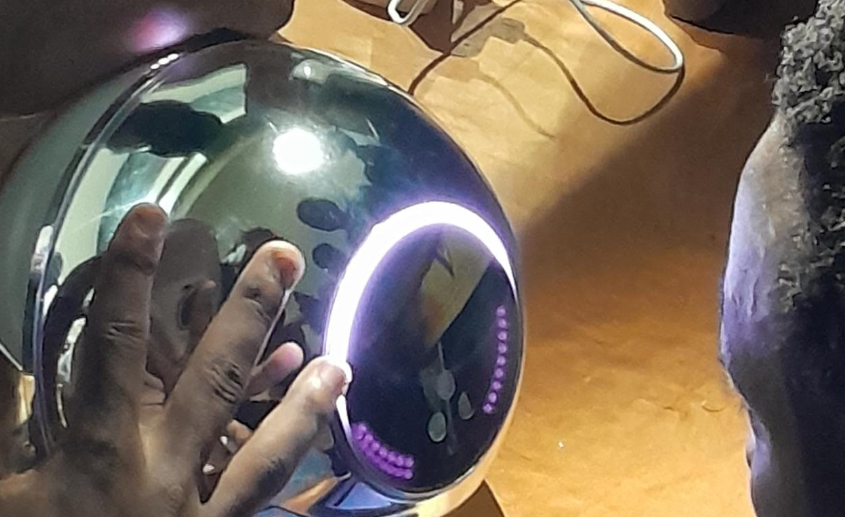Leaders now call for probe into Worldcoin operations

Kenya has become the first country to fully suspend the operations of Worldcoin, a global network of digital identities based on iris scans, whose activities are also under investigation in Europe.
Interior Ministry says the ban will allow authorities to evaluate potential hazards to the public’s safety.
Sam Altman, the chief executive of OpenAI, founded the eyeball harvesting initiative, which debuted last week in Kenya, making it all the rage. In most countries, users receive free cryptocurrencies as part of efforts to lure them into establishing what they call a new “identity and financial network” in exchange for providing their iris scans to obtain the new digital ID.
“Relevant security, financial services and data protection agencies have commenced inquiries and investigations to establish the authenticity and legality of the aforesaid activities,” Interior Cabinet Secretary Kithure Kindiki said in a statement.
Kindiki said the government was concerned about Worldcoin’s operations and that agencies would look into how the company planned to use the information it collects. Without going into further detail, he stated that anyone who participates in its operations would face punishment.
National Assembly Speaker Moses Wetangu’la has now directed the Interior and ICT Cabinet Secretaries to issue a statement explaining the registration of Worldcoin.
Wetang’ula told Majority Leader Kimani Ichung’wa to bring the statement this afternoon. “Given the gravity of the matter I direct that you bring a preliminary statement by tomorrow at 2:30,” directed the Speaker. In a statement yesterday, the Interior ministry said it is suspending all activities until concerned government agencies ascertain that the app is free of any risks.
“The Government has suspended forthwith, activities of Worldcoin and any other entity that may be similarly engaging Kenyans until relevant public agencies certify the absence of any risks to the general public whatsoever,” Kindiki stated.
Additionally, action will be taken on anyone found engaging members of the public in Worldcoin activities.
Minority Leader Opiyo Wandayi dismissed calls for a statement on the matter, saying it does not require any further statements from either of those CSs.
“As a House, we just need to undertake a very thorough and expeditious investigation and summon everybody else who could be involved in this nefarious activity,” said Wandayi. He added: “If we come here again and ask for responses from the two CSs who appear to be speaking at cross-purposes on this single issue, then what are we doing?”
Private company
Kirinyaga Women Rep Jane Njeri said, “We must be told by the two Cabinet Secretaries why they allow that. How much data has the private company harvested? We need to know and they cannot leave this nation before we have that information.”
Capital Markets Authority has also cautioned the public, saying Worldcoin is not regulated in Kenya. “Worldcoin related products including crypto tokens and their derivatives are not investment products within the scope of the Capital Markets Authority and hence not the regulatory purview of CMA,” the regulator said.
People flocked registration centres all around the world, including in Kenya, Germany, Spain and France, to have their eyes scanned by a glittering, spherical “orb” since the programme’s introduction.
Kenyatta International Conference Centre, where the eye-scanning procedure was taking place, had long lines on Tuesday, which prompted authorities to halt the registration process due to security concerns.
The Worldcoin project gives each signup a digital ID that, according to the idea, will assist online users identify between real people and Artificial Intelligence (AI) programmes.
According to the creator, eye-scanning will be essential in a future where it will be harder to tell humans from robots as a result of an increase in AI technology.
The project was suspended just days after the Office of the Data Protection Commissioner issued a warning against it, advising Kenyans to exercise greater caution and make sure they are properly informed prior to revealing any personal or sensitive information.
In a joint state, the Communications Authority of Kenya and Office of the Data Protection Commissioner said they have undertaken a preliminary review and noted a number of legitimate regulatory concerns that require urgent attention.
The issues are lack of clarity on the security and storage of the collected sensitive data (facial recognition and iris scans), obtaining consumer (data subject) consent in exchange for monetary reward which borders on inducement.
They also cited uncertainty regarding consumer protection on cryptocurrency and related ICT services and inadequate information on cybersecurity safeguards and standards.
Others are concerns over massive citizen data in the hands of private actors without an appropriate framework.
Several European regulators have started investigations into Worldcoin, among them the Bavarian data protection office that supervises the firm, according to a statement sent to CoinDesk.










